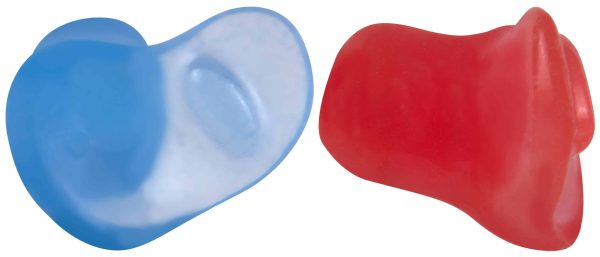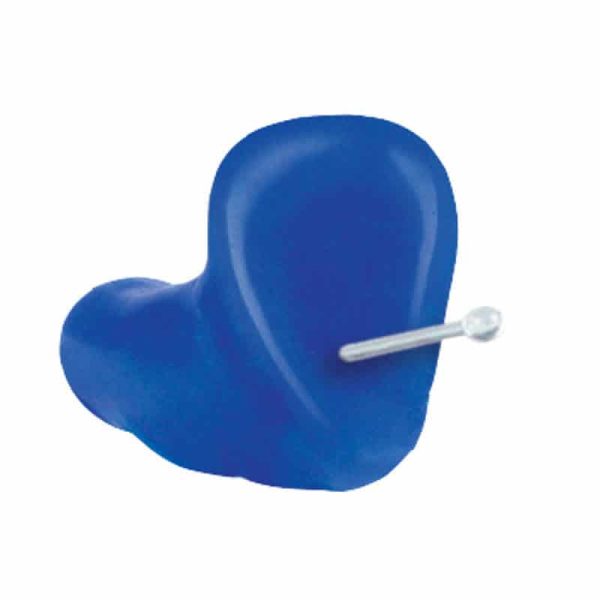- 800.525.2690
- [email protected]
- Mon - Fri: 8:00 - 4:30
Is Sleeping With Earplugs Bad? Potential Side Effects & Safety Tips
Is sleeping with earplugs bad for your ears? Discover the pros, cons, and safety tips for sleeping with earplugs every night. Learn how to avoid side effects and find the best sleeping earplugs for restful, uninterrupted sleep.
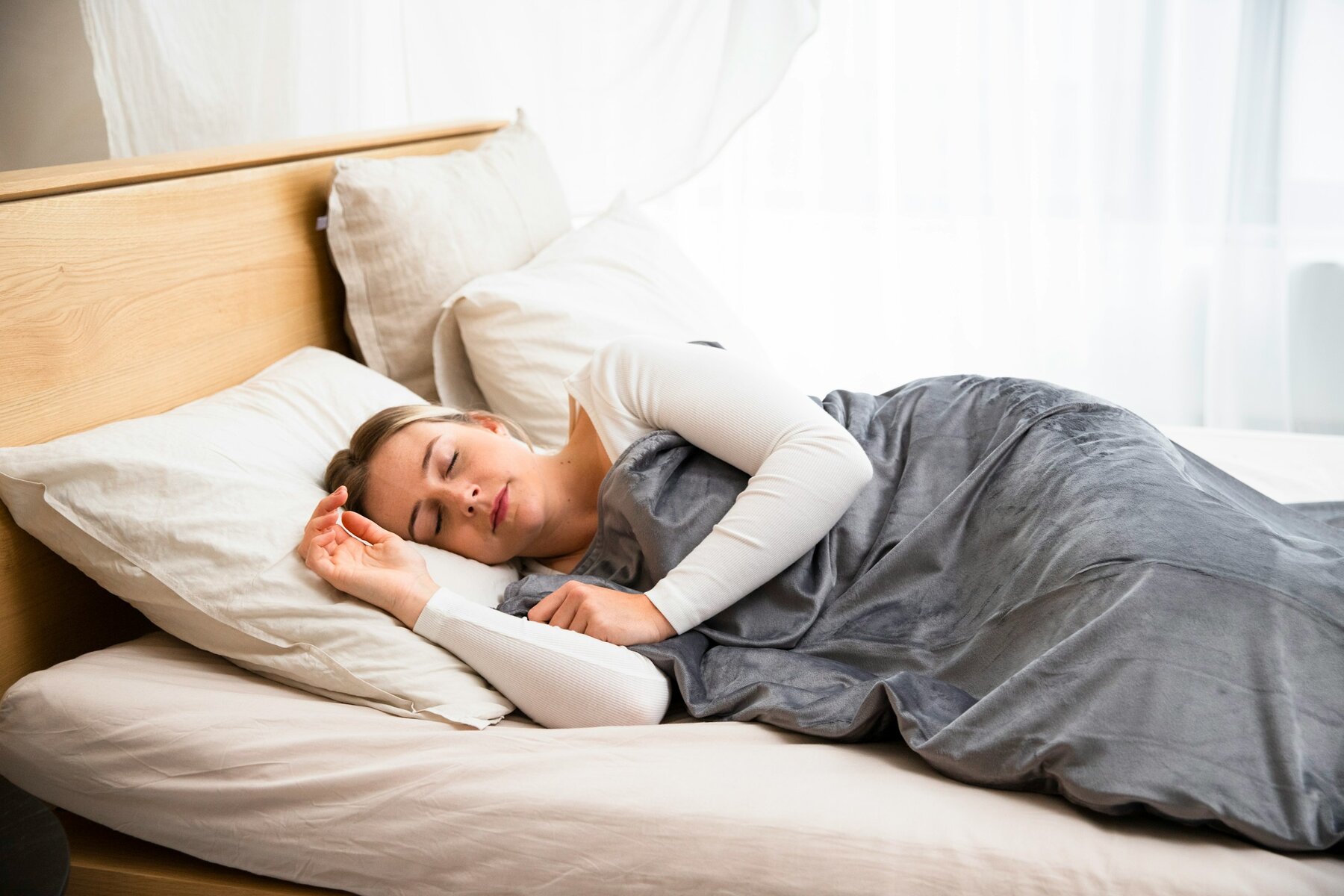
High-quality earplugs for sleeping are a go-to solution for blocking out noise from snoring partners, traffic, or loud neighbors. But many people still wonder, is sleeping with earplugs bad for your ears?
While earplugs are quite safe and can improve sleep quality, they’re not risk-free. This article breaks down the benefits of using earplugs at night, potential side effects and safety concerns, and tips for safe use, plus alternatives if you want other options for quiet sleep.
Shop our collection of sleep earplugs ➔
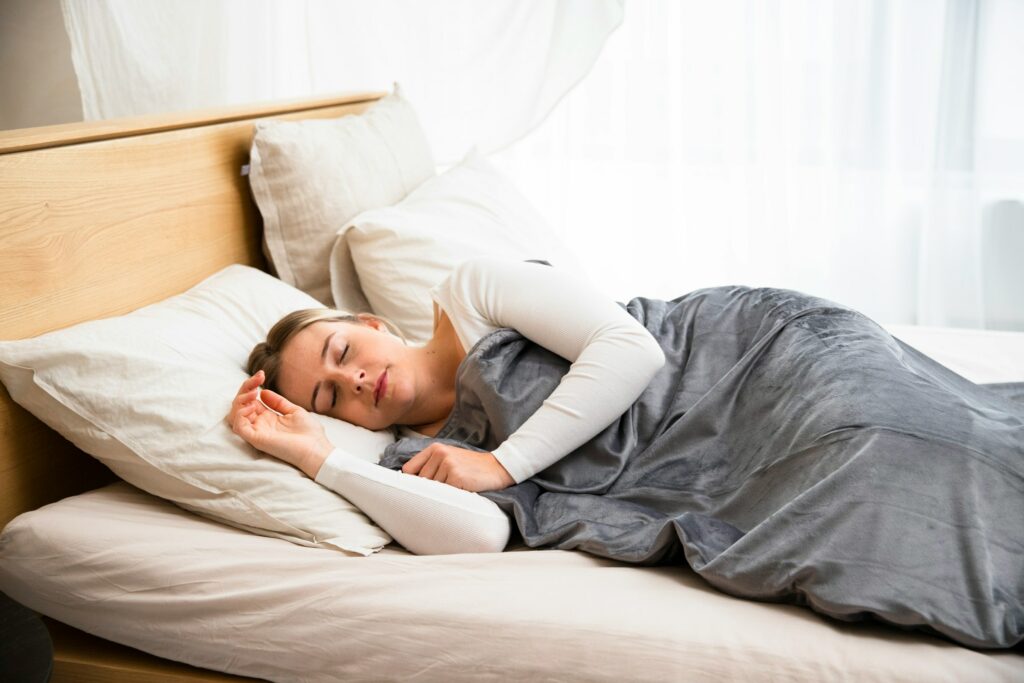
Why People Sleep with Earplugs
Many people turn to earplugs for sleeping (like our Sleep Plugs Plus) when dealing with constant disturbances. They’re especially helpful for light sleepers who wake easily, people living in noisy neighborhoods, and those with snoring partners. They are also soft and comfortable to wear, even for side sleepers.
Sleep Quality Benefits
Consistent noise disrupts your ability to reach deep sleep. Sleeping with earplugs can:
- Block disruptive noise like traffic or conversations
- Help your brain stay in restorative sleep cycles
- Lower the risk of sleep-related health issues such as high blood pressure, depression, and fatigue
A quieter sleep environment often leads to better overall health.
Ear Plugs Sleeping Side Effects
Physical Risks
Using earplugs for sleeping isn’t without potential downsides. The most common side effect of sleeping with earplugs is earwax buildup, which can happen over time and may lead to:
- Temporary hearing loss
- Ear pressure or discomfort, especially for side sleepers
- Tinnitus (ringing in the ears)
Bacteria from unclean or reused earplugs can also lead to ear infections, especially if hygiene is neglected. Inserting earplugs too deeply may cause eardrum irritation or pain.
Practical Risks
Wearing earplugs every night may also come with real-world drawbacks. You might:
- Miss alarms or emergency sounds, such as smoke detectors or a phone call
- Reduced awareness of nighttime cues, such as a baby crying or urgent noises
Long-Term Concerns
If used improperly over long periods, earplugs can create recurring issues. These include:
- Ongoing ear infections or chronic discomfort
- A potential for permanent damage to inner ear structures in severe cases
Despite these risks, ear plugs sleeping side effects are avoidable with proper hygiene and technique. Understanding the drawbacks helps you use them more safely and confidently.
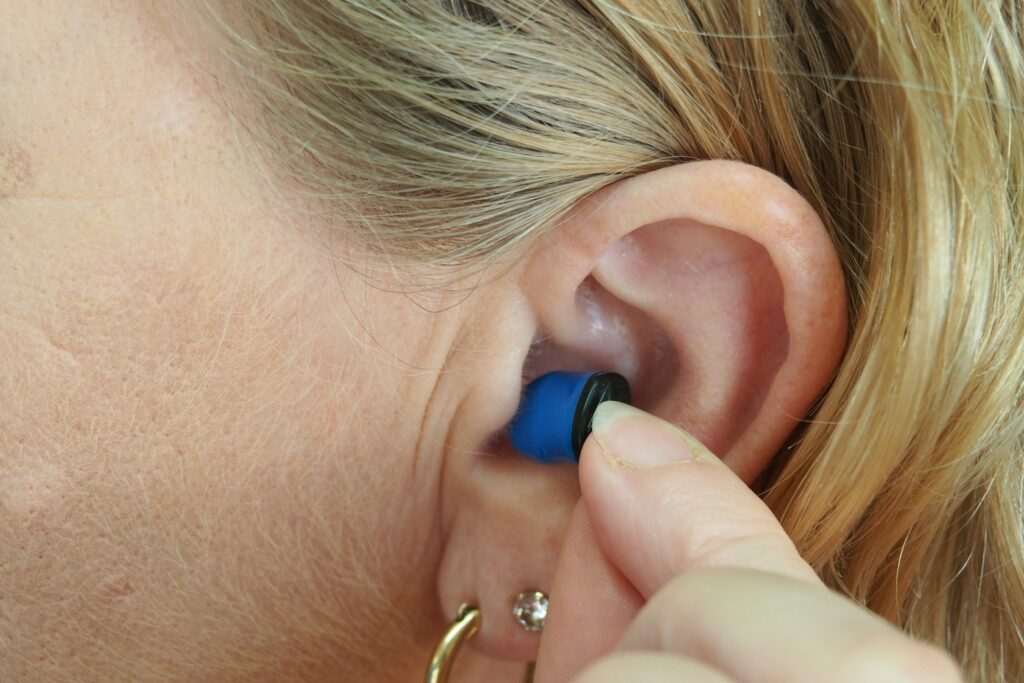
Are Sleeping Earplugs Safe If Used Properly?
Sleeping earplugs are generally safe when used with proper hygiene and care. Reusable plugs should be washed with mild soap and warm water to remove bacteria.
Foam earplugs should be replaced every few days, as their porous surface can trap moisture and germs.
Always insert earplugs with clean hands, and ensure your ears are dry to prevent infection.
Proper Insertion Tips
To avoid irritation or injury, follow correct insertion steps. Roll the earplug into a slim shape, pull your ear gently upward, and insert it slowly. Never force earplugs deep into the ear canal, as this can lead to pressure or damage.
When not in use, store your earplugs in a clean, dry case to keep them sanitary and extend their lifespan. Used correctly, earplugs for sleeping are a safe and effective tool for better rest.
Best Types of Earplugs for Sleeping
Choosing the right type of earplugs can make a big difference in comfort and noise reduction.
Each material has its pros and cons depending on your sleeping style and preferences.
Foam
Soft and inexpensive, foam earplugs are widely used for their ability to block sound effectively. However, they must be replaced frequently since they absorb moisture and can harbor bacteria.
Silicone
Soft silicone is more comfortable for side sleepers and molds slightly to your ear shape. They are reusable, but may not provide the same level of noise isolation as foam.
Wax
Wax earplugs are moldable and create a tight seal, offering strong noise reduction. They’re also waterproof and hold up well over time. However, they can become sticky or leave residue, making them less convenient to handle and clean.
Custom Earplugs
Custom earplugs are made to fit your ear canal perfectly. Though more expensive, they provide the best fit, comfort, and long-term noise isolation for nightly use.
Recommended Earplugs for Sleeping from EAR Inc.
Sleep Plugs Plus
Sleep Plugs Plus are designed for maximum comfort and sound reduction. What sets them apart is their low-profile shape and soft, medical-grade material, which allows for all-night wear without irritation.
They’re a solid choice for anyone seeking a reliable, comfortable earplug for long-term, nightly use.
Chameleon Ears Pro
Chameleon Ears Pro custom sleeping earplugs are a custom-molded option built for long-term comfort and fit. They’re reusable, easy to clean, and especially effective for side sleepers who need earplugs that stay put without causing pressure.
Alternatives to Earplugs for Sleeping
If sleeping with earplugs doesn’t work, there are other alternatives for sleeping in noise.
White Noise Machines
These devices create a steady sound backdrop to drown out disruptive noise without blocking your ear canal. They’re ideal for people who want passive noise masking with no physical contact.
Sleep Headphones or Earbuds
Designed for comfort in bed, sleep headphones can stream calming audio or white noise directly into your ears without pressure.
Soundproofing the Environment
Adding window inserts, door seals, or heavy curtains can reduce ambient noise and improve overall sleep conditions.
Is It Bad to Wear Earplugs Every Night?
Wearing earplugs every night isn’t inherently bad, as long as you use them how they’re intended. With proper hygiene, careful insertion, and regular replacement, earplugs are a safe and effective tool for better sleep.
Watch for signs of earwax buildup, discomfort, or infection. If you notice any symptoms, take a break or consult a hearing specialist. Used responsibly, earplugs for sleeping can support long-term sleep health.
FAQs About Sleeping With Earplugs
Can earplugs cause ear damage?
Yes, they can if misused. Inserting earplugs too far or reusing dirty ones can irritate the ear canal, cause pressure, or introduce bacteria that lead to infections and hearing loss.
Is it bad to wear earplugs every night?
Not necessarily. Wearing earplugs every night is safe if you follow proper hygiene, replace or clean them regularly, and insert them gently. Monitoring for discomfort or buildup is key for preventing problems from sleeping with earplugs.
Are sleeping earplugs safe for kids?
Earplugs can be safe for children, but only with adult supervision and child-safe designs. Check for proper sizing and avoid foam types that may pose a choking risk.
What’s the best alternative to earplugs for sleeping?
If earplugs aren’t a good fit, consider other options. White noise machines help mask disruptive sounds. Sleep headphones or soft earbuds can stream calming audio. Improving room acoustics with soundproof curtains or window inserts can also reduce nighttime noise.

